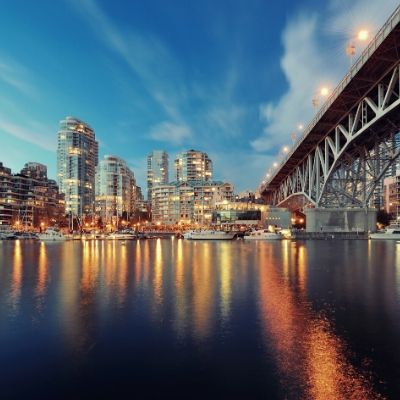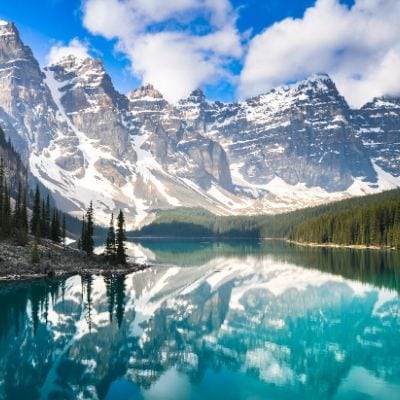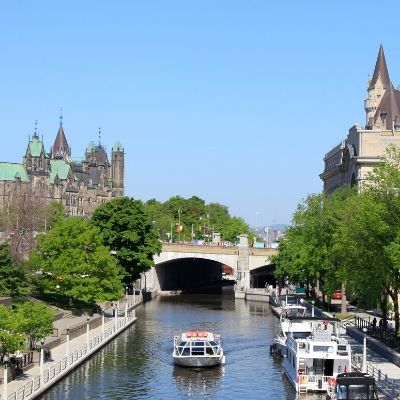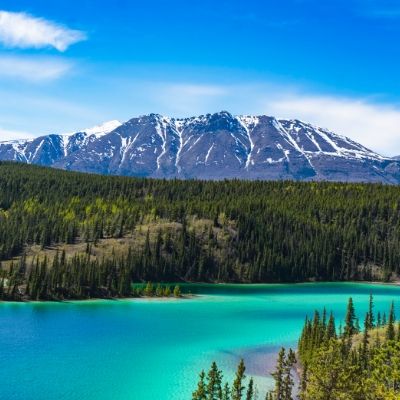No Results Found
The page you requested could not be found. Try refining your search, or use the navigation above to locate the post.
Canada is a huge country located in North America. Canada is one of the most popular destinations in the world. It has something for everyone – backpackers, couples, solo travelers, luxury travelers, etc. It’s also a popular destination for working holiday makers.
Canada offers several experiences – from surfing to trekking in beautiful national parks, from winter sports to amazing wildlife, from epic festivals to relaxing summer barbeques, from breathtaking mountain views to kayak trips – you should find something that suits your needs and interests.
If you’re planning your first trip to Canada, this guide should answer any questions you may have. We’ll talk about travel facts, the best time to visit Canada, the best destinations, travel costs, travel essentials and how to prepare for your trip.
| Information | Canada |
|---|---|
| Language | English, French |
| English-friendly | Yes |
| Currency | CAD (Canadian dollar) |
| Internet reliability | Great |
Canada is a huge country and depending on your destination, you may be facing different types of weather conditions. Typically Canada has four seasons, but the weather in these seasons varies a bit throughout the country. We decided to split this section into four sections to help you understand the seasons:
| Areas | Seasons & Months | Weather Conditions |
|---|---|---|
| British Columbia |
Spring – March to May Summer – June to August Autumn – September to November Winter – December to February |
A year-round moderate climate, seasons are less distinct from one another |
| The Rockies |
Spring – March to May Summer – June to August Autumn – September to November Winter – December to February |
Long winters with lots of snow in the mountains Snow can last until May |
| Eastern Canada |
Spring – March to May Summer – June to August Autumn – September to November Winter – December to February |
Very cold winters with -20°C (or worst) Spring arrives early Hot summers |
| Northern Canada |
Spring – March to May Summer – June to August Autumn – September to November Winter – December to February |
Cold winters with temperatures of -25 to 30°C Summers are cold |






In this section, you’ll find general information on costs and how to prepare for your trip. Finally, you will find a table that will provide an overview of cost and options depending on your travel budget.
In Canada, you’ll find several options when it comes to accommodation. Whether you’re a budget traveler or not, you will be able to find options. Although, note that Canada is quite expensive. You can find dorms starting at $16 per night in some places, but it also depends on where you are. The average is around $22-25 per night for a dorm.
When it comes to food, you can find different types of restaurants. An average meal in a restaurant would be around CAD 10-15. Obviously, you may find elegant restaurants around the country and you can pay more if you wish to. If you’re traveling on a budget, you should cook your own food to save money.
Some activities such as hiking or beach bumming are free. Although, if you’re planning on visiting the rocky mountains, going to a hockey game, trying Canadian cuisine or going heli-skiing, you will have to pay for it. You can browse activities in Canada here to have an idea of the costs.
In general, it’s really easy to get around Canada. You can either fly, take a bus or the train, or rent a car to reach your destinations.
To book your transport between destinations, you can book via Busbud.
| Travel Cost | Budget travel | Mid-range | Luxury |
|---|---|---|---|
| Accommodation | $16-30 per night | $30-70 per night | $70+ |
| Meal | $10-15 per meal | $15-25 per meal | $25+ |
| Activities | Focus on free activities | Mixing free activities & mid-range | $30+ per day |
| Transport | By bus, by train | By bus, by car, by train | By car/van, by flight |
Overall, traveling around Canada is pretty safe. Of course, you should always lock your valuables, especially if you’re staying in a hostel.
Use common sense and avoid certain neighborhoods in certain cities (for example, in Vancouver, you should avoid some areas where drug users are present – the crime rate is higher there, and you won’t feel safe walking around these streets).
Hitchhiking across Canada is pretty popular. When I was living in the Canadian Rockies, I hitch-hiked every week. Although, if you decide to hitchhike, be careful and use common sense for a safe experience. You should only consider this option if you feel confident and comfortable since it can still be risky.
Apart from the travel essentials, here are the things you should absolutely bring along with you in Canada. Click on the images to shop on Amazon.
Usually, you can apply for your visa online. The process is quite quick. Note that you will also need to apply for your working holiday visa online.
You can verify your visa requirements here.
Browse flights on Skyscanner to find deals.
Book your travel insurance for as little as $42/month.
Find accommodation anywhere in the world.
Check the visa requirements and apply for a visa if needed.
Book transfers, tours, and activities in advance.
It’s hard to find a good data plan when you’re traveling. You have to research the best deals, go to a store, and hope they have a prepaid SIM card for travelers and tourists.
And if they don’t? You could be without service for the rest of your trip. Not only is that frustrating, but it can also be time-consuming.
eSIMs are the solution to your travel woes. With an eSIM plan, you can stay connected no matter where you go. Plus, there are no contracts or cancellation fees, so you can change your plan whenever you want.
If you’re looking for an eSIM plan while in Canada, then be sure to check out the providers below. They all offer great plans that will keep you connected while you’re there.


The page you requested could not be found. Try refining your search, or use the navigation above to locate the post.